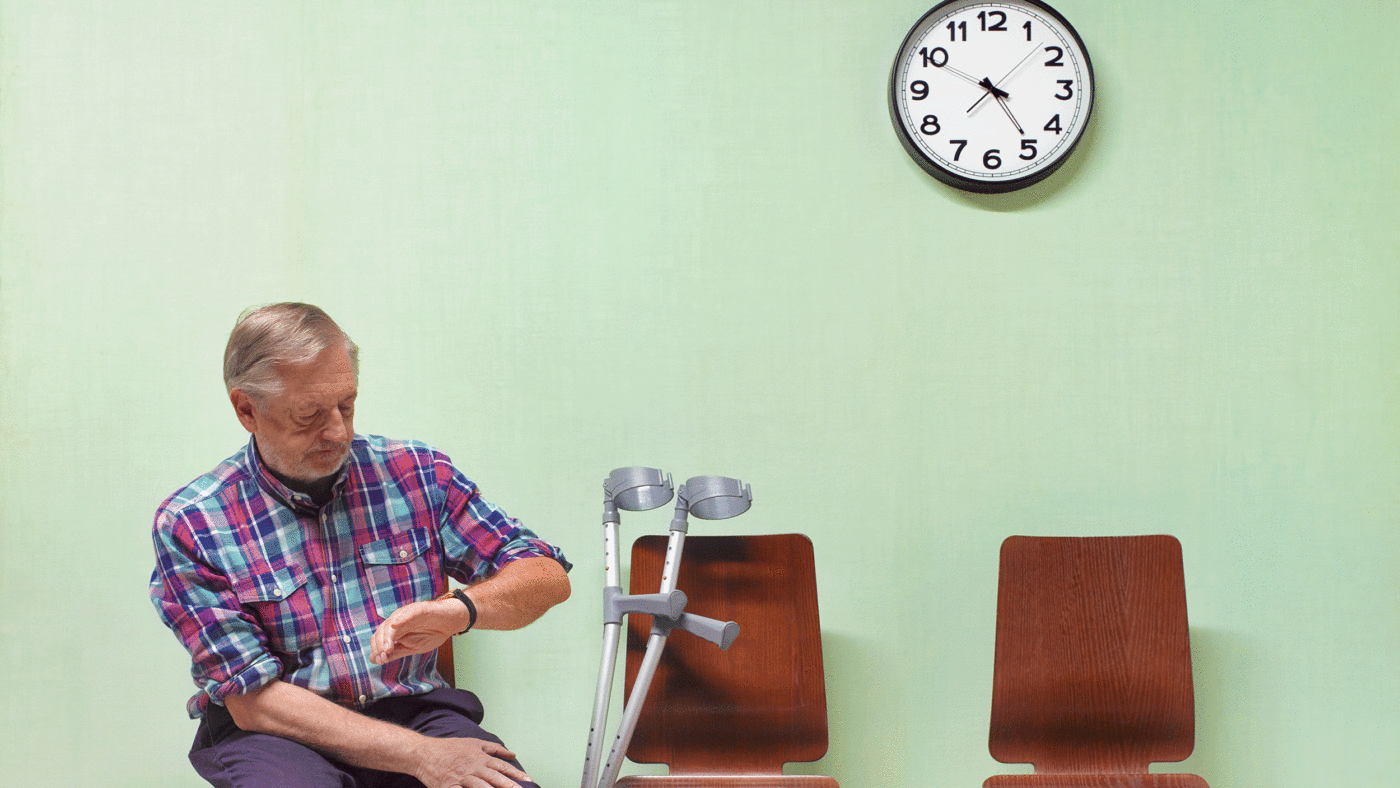Public satisfaction with the NHS has fallen to the lowest levels since records began, according to the latest edition of the British Social Attitudes (BSA) survey. Only 29% of respondents are satisfied with the NHS, while 51% are dissatisfied.
This may not, in itself, be surprising. More than 7 million people are currently on an NHS waiting list of some sort, up from about 4.5 million just before the pandemic, and less than 3 million a decade ago. Of those currently on a waiting list, 4 million have already been waiting for longer than four months, and 400,000 for longer than a year.
But the results of the BSA survey indicate a massive change. Until very recently, surveys about the NHS always returned phenomenally positive results.
From 2007 to 2019, the share of BSA respondents who said they were satisfied with the NHS exceeded 50% in every single year, and it could go as high as 70%. The share of respondents who were dissatisfied never went above 30%, and could go as low as 15%.
The BSA was no outlier. In a YouGov poll from 2016 which asked ‘Do you believe the NHS delivers the best health outcomes in the world?’, 44% of respondents answered ‘Yes’, and only 36% answered ‘No’. During the pandemic, an international survey repeatedly asked people in different countries how well, or how badly, they thought their countries’ institutions were doing in dealing with Covid. Swedish, German and Japanese respondents also believed that their healthcare systems were doing a pretty good job, but in no other country were people anything like as positive about their healthcare system – or, indeed, any institution – as Britons were about the NHS.
But I have always had my suspicions about surveys of this kind. The problem with praise – whether it is expressed in surveys or in our personal lives – is that when it becomes too positive, it stops feeling genuine, because it becomes implausible. If, after reading this, you dropped me an email saying ‘I enjoyed your article; interesting point well made’, I would be happy. But if you said, ‘You, sir, are a genius! Your article is the best thing I have read in years!’, I would suspect that you want a favour from me.
NHS surveys are no different. Yes, the NHS gets some things right. But it never delivered anything like ‘the best health outcomes in the world’. In terms of survival rates for stroke, cancer, heart attack and other conditions, it has lagged behind most of its Western European counterparts for as long as we have data. However, until very recently, it was simply not considered socially acceptable to criticise the NHS. And my suspicion is that that is what explains these implausibly positive survey results. People told the pollsters what they thought they ought to say.
The BSA survey has always had a political element. For example, Tory voters claim to be more satisfied with the NHS when the Tories are in government, and Labour voters claim to be more satisfied with the NHS when Labour are in government. It is very unlikely that this is driven by genuine differences in how different groups experience NHS care. A much more likely explanation is that a lot of people use those surveys to express political loyalties.
It is not a huge stretch to assume that, in the same way, a lot of people use them to express their support for the idea of the NHS, rather than to describe their own experience of it, or their impression of how well or badly it was performing in any objective way.
This is the real reason why the latest BSA results are newsworthy. They may indicate a major change in social norms. Criticism of the NHS is no longer the social taboo it once was. If the NHS were to lose its halo, and if more people began to judge it by its actual performance rather than by the mythology around it, it could be real a gamechanger.
Click here to subscribe to our daily briefing – the best pieces from CapX and across the web.
CapX depends on the generosity of its readers. If you value what we do, please consider making a donation.


